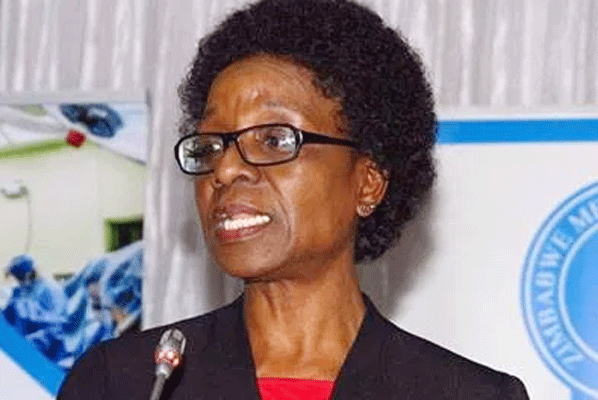
By Phylis Mbanje
Zimbabwe’s top Covid-19 response expert Agnes Mahomva has bemoaned the spread of fake news, which she says is negatively impacting on the country’s efforts to fight the pandemic.
Mahomva, the chief coordinator for the Covid-19 taskforce, told this year’s edition of the health summit organised by The Standard on Wednesday that panic and misinformation were the biggest threats to a successful fight against the spread of the coronavirus.
“We have to do away with the panic when we see numbers shooting up,” she said.
“Fake news and misinformation is our biggest challenge that we have to deal with.”
Mahomva said the second wave of the pandemic that began after the festive season and resulted in the deaths of over 1 000 people had provided Zimbabwe with tough lessons.
She said the country could not afford to be complacent again as it was at high risk of a third wave.
“Let us not miss the ball again,” she said. “Let us hold on and continue with the strategies including the vaccine.”
- Chamisa under fire over US$120K donation
- Mavhunga puts DeMbare into Chibuku quarterfinals
- Pension funds bet on Cabora Bassa oilfields
- Councils defy govt fire tender directive
Keep Reading
Mahomva also spoke about Zimbabwe’s Covid-19 vaccine choices, which she said were influenced by science.
Zimbabwe started rolling out a Covid-19 vaccination programme a fortnight ago after receiving a donation of 200 000 doses of China’s Sinopharm vaccine.
China also recently donated another batch of 200 000 doses of the Sinopharm vaccine with the government expected to buy 1.2 million more dosses from the same supplier.
Zimbabwe is expecting to receive doses of Russia’s Sputnik vaccine. It has also become the first African country to authorise the use of India’s homegrown coronavirus vaccine, Covaxin.
Mahomva said the government first analysed vaccine data from different suppliers before approvals by the Medicines Control Authority of Zimbabwe.
“We are satisfied and happy with (the Sinopharm vaccine),” she said.
“Inactivated vaccines use a pathogen that has been modified so that it cannot replicate to stimulate the immune system.
“They are safe because they cannot cause disease. It is also suitable for those with a compromised immune system.
“However, booster doses may be necessary.”
Mahomva dispelled myths that the Sinopharm vaccine could cause sterility and urged people to take it than to be exposed to the virus.
“While globally fake news is everywhere, Zimbabwe has taken it to another level,” she said. “We create jokes about misinformation.”
Zimbabwe Association of Doctors for Human Rights secretary-general Norman Matara told the summit that the government should shoulder some of the blame for the spread of fake news.
“The Sinopharm vaccine was highly comparable in terms of efficacy and safety, but people have trust issues with the government,” Matara said.”
As of Friday, Zimbabwe had 36 248 Covid-19 cases with 33 759 recoveries and 1 484 deaths.
The number of infections has gone down significantly in recent weeks, which saw the government gradually opening up the economy after a tough lockdown that was imposed in January when cases spiked.










